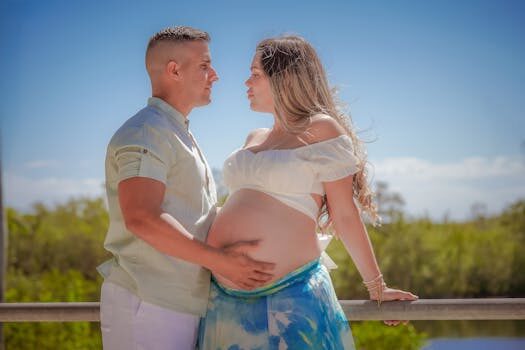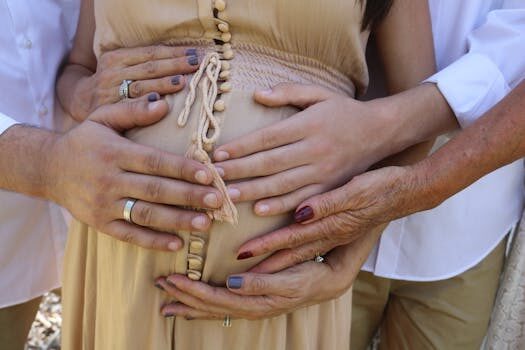Can twins cause a false negative pregnancy test?

Home pregnancy tests have become a common method for women to determine if they are pregnant. While these tests are generally reliable and about 99% accurate, there are rare circumstances that can lead to a false negative result. One of these scenarios includes twin pregnancies. If you’re wondering can twins cause a false negative pregnancy test?, this article will provide insights into the mechanisms behind these results and what to consider if you suspect you might be pregnant with twins.
Let’s explore how twin pregnancies can complicate the accuracy of home pregnancy tests and the factors that can lead to a misleading negative result.
Here's why twins can cause a false negative pregnancy test in rare cases
A false negative pregnancy test occurs when a test indicates that a person is not pregnant, even though they are. In cases of multiple gestation, such as with twins, the dynamics of hormone levels can create misleading results.
The primary hormone detected in pregnancy tests is human chorionic gonadotropin (hCG). Typically, hCG levels rise significantly after conception, but in twin pregnancies, the situation can become more complicated. Some factors that contribute to false negatives include:
- Testing too early: If the test is taken before hCG levels are sufficiently elevated, it may not detect the hormone accurately.
- Using diluted urine: HCG concentration can be lower in diluted urine, leading to a negative result even if pregnancy is present.
- Expired tests: Using a pregnancy test past its expiration date can also yield inaccurate results.
Can a negative pregnancy test still mean you are pregnant with twins?
Yes, a negative pregnancy test can still indicate that you might be pregnant with twins. Due to the complexities involved with hCG levels in multiple gestations, it is entirely possible to receive a negative result while being pregnant.
If you suspect you are pregnant and have pregnancy symptoms like nausea or fatigue despite a negative test, it’s important to consider retesting after a few days. This allows time for hCG levels to rise, making detection more likely. Additionally, consulting with a healthcare provider can help clarify your situation and provide more accurate testing options.
Understanding false negatives in twin pregnancies
False negatives can be particularly frustrating, especially when your body is signaling pregnancy. In twin pregnancies, the levels of hCG can behave differently than in single pregnancies. For example:
- In some cases, the body may produce very high levels of hCG, which can lead to a phenomenon known as the hook effect. This effect occurs when extremely high concentrations of hCG overwhelm the test's ability to detect the hormone properly, resulting in a negative reading.
- The average time for a pregnancy test to become positive is usually around 10 days post-conception. However, with twins, the variability can be greater, leading to confusion regarding test results.
Understanding these unique factors is essential for anyone suspecting they might be having twins.
Why do home pregnancy tests fail with multiple gestations?
Home pregnancy tests can fail for various reasons when it comes to multiple gestations. Here are some key points to consider:
- Hormonal variations: In twin pregnancies, hCG levels may fluctuate more than in singleton pregnancies, causing difficulties in detection.
- Timing of the test: Testing too early can lead to false negatives, particularly if the embryo implantation timing is delayed.
- Individual differences: Some women naturally have lower hCG levels, which can contribute to an inaccurate reading.
It’s crucial to understand how these factors might influence the outcome when relying on home pregnancy tests. Seeking medical advice can provide clarity in these situations.
The hook effect in twin pregnancies and pregnancy tests
The hook effect is a significant factor to consider in twin pregnancies. This phenomenon happens when there is an excessively high level of hCG in the bloodstream, which can interfere with the test’s ability to detect the hormone.
When the body is carrying twins, hCG levels can soar well above normal ranges. If you experience symptoms of pregnancy but receive a negative test result, consider the possibility of the hook effect. In such instances, a healthcare provider may recommend blood tests, which are more sensitive and can provide accurate results even in cases of extremely high hCG levels.
When to retest after a negative pregnancy test in twin pregnancies
If you suspect you are pregnant, especially with twins, and receive a negative pregnancy test, it’s often recommended to wait a few days before retesting. The following points can help determine the best timing for retesting:
- Wait at least 48 hours: This allows time for hCG levels to rise significantly enough to be detected.
- Consider your cycle: Test around the time your period is due for the best results.
- Consult your healthcare provider: If doubts persist, a blood test can provide definitive answers.
Taking these steps helps ensure that you accurately determine your pregnancy status, especially in the context of multiple gestations.
Related questions about pregnancy tests and twins
Can you be pregnant with twins and get a negative test?
Yes, it is possible to be pregnant with twins and receive a negative pregnancy test result. This may be due to low hCG levels or testing too early. Women experiencing persistent pregnancy symptoms should follow up with retesting or consult a healthcare provider for further evaluation.
Do twins take longer to show on pregnancy test?
In general, twins may not necessarily take longer to show on a pregnancy test, but the timing can vary based on individual hormone levels. Testing too early may lead to initial false negatives, so it’s advisable to wait for the optimal time to retest.
Can you get a false pregnancy test with twins?
Yes, a false negative pregnancy test can occur in cases of twins due to various factors such as the hook effect, testing early, or using diluted urine. It’s important to be aware of these factors when interpreting test results.
Can twins cause a false negative pregnancy test at Babycenter?
While Babycenter and other resources may address this question, the general consensus is that twin pregnancies can indeed result in false negatives. It is crucial for anyone suspecting they may be pregnant with twins to consider retesting and consult healthcare providers for accurate assessments.

In conclusion, understanding the complexities of home pregnancy tests, especially in the context of potential twin pregnancies is vital. If you suspect that you might be pregnant with twins, remain vigilant about your symptoms and consult professionals for the most accurate information and support.
